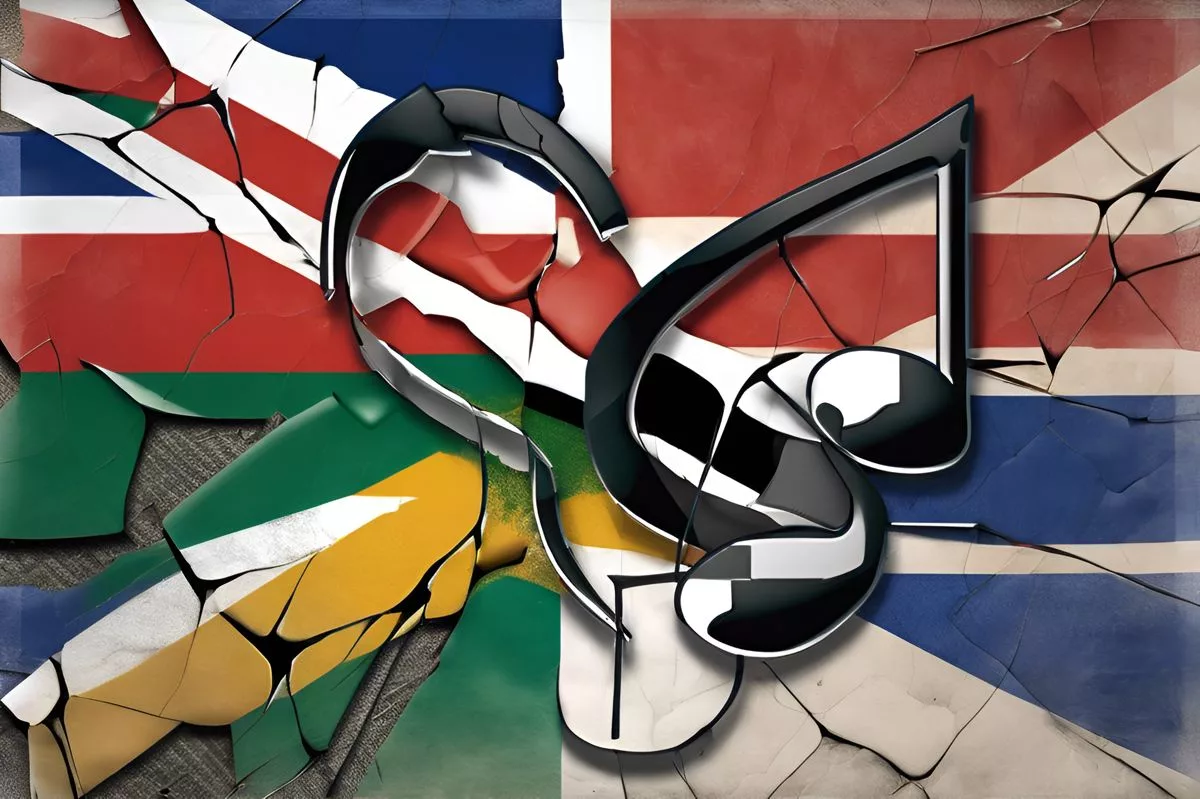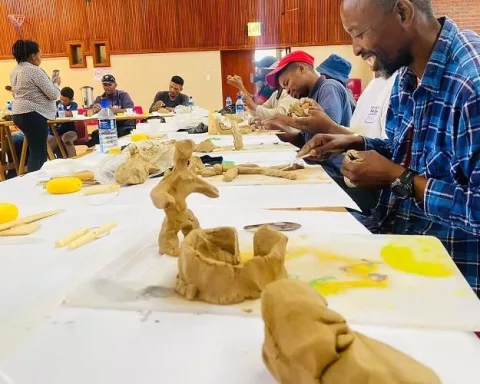Chris Brown’s legacy in South Africa stirs up heated debate because of his past, especially the violent incident with Rihanna in 2009. Many activists believe his concerts send the wrong message in a country struggling with high rates of violence against women. Groups like Women For Change argue that celebrating artists with violent histories harms abuse survivors. As South Africa holds its annual campaign against gender-based violence, the timing of Brown’s performances raises questions about how society views art versus ethics. This situation pushes us to think about how we honor talent while supporting those affected by abuse.
Why is Chris Brown’s legacy controversial in South Africa?
Chris Brown’s legacy in South Africa is controversial due to his history of domestic violence, particularly the 2009 assault on Rihanna. Activists argue that his performances undermine efforts against gender-based violence, raising ethical questions about celebrating artists with violent pasts and the impact on abuse survivors in a country facing high femicide rates.
The Polarizing Figure of Chris Brown
In the ever-evolving world of music and celebrity culture, there are few names as divisive as Chris Brown. Once celebrated as an exceptionally talented musician with a bright future, Brown’s career trajectory has been significantly tarnished by a series of controversies, most notably the notorious 2009 assault on his then-girlfriend Rihanna. With his upcoming concerts scheduled in South Africa, a nation grappling with persistent gender-based violence (GBV), debates over his legacy have resurfaced, stirring public opinion and ethical questions.
Women For Change, a dedicated advocacy group fighting GBV, has taken a strong stand against Brown’s performances. They argue that his history of domestic violence cannot be overlooked, highlighting a critical tension between artistic freedom and moral accountability. By allowing Brown to take the stage, the group believes it sends a harmful message to abuse survivors, especially in a country where femicide rates are alarmingly high. This situation provokes important questions about the responsibilities of those who control cultural narratives and whether commercial success should overshadow ethical obligations.
The scrutiny extends to South Africa’s Department of Home Affairs, which approved Brown’s entry into the country. Critics argue that granting him a visa reflects deeper systemic issues in safeguarding vulnerable populations. Women For Change urges decision-makers to reevaluate their stance, advocating for a society that prioritizes the support of survivors rather than celebrating individuals with violent histories.
Cultural Implications and Activism
The controversy surrounding Chris Brown’s concerts coincides with South Africa’s annual 16 Days of Activism, a campaign focused on raising awareness about GBV. The timing of Brown’s performances during this period has not gone unnoticed by activists, who argue that featuring an artist with his background undermines the campaign’s goals of creating safer environments for women and girls. This coincidence highlights the paradoxical nature of cultural events being at odds with societal missions for justice and safety.
A parallel development in this ongoing discussion is the Investigation Discovery channel’s plan to broadcast a documentary titled “Chris Brown: A History of Violence.” This film promises an in-depth exploration of the singer’s troubled past, including allegations of sexual assault and aggression, as part of the channel’s broader “No Excuse For Abuse” campaign. The documentary aims to hold public figures accountable and examines the impact of Brown’s actions on his victims, contributing to the broader conversation about accountability in the entertainment industry.
Through expert analysis and testimonies from survivors, the documentary seeks to explore the psychological repercussions of Brown’s actions and the cyclical nature of abuse. By delving into his childhood experiences and subsequent behavior, the filmmakers aim to provide a nuanced understanding of his past while highlighting the pervasive effects of abuse. This approach underscores the importance of addressing both individual actions and broader systemic issues.
Broader Societal Questions
The discourse around Chris Brown and his scheduled performances in South Africa raises essential questions about the broader societal implications. It forces us to confront how society reconciles the tension between artistic talent and personal conduct. Should an artist’s past misdeeds indefinitely overshadow their achievements, or is there a potential for redemption? These complex questions are crucial in shaping cultural landscapes and determining societal values.
Historically, the intersection of artistic expression and personal morality has sparked contentious debates. Figures like Caravaggio and Wagner have prompted discussions about whether their art should be appreciated independently of their personal failings. The conversation surrounding Chris Brown echoes these historical debates, albeit in a contemporary context where social media amplifies public opinion and advocacy groups wield significant influence.
The situation also emphasizes the significance of cultural movements advocating for justice and accountability. Organizations like Women For Change exemplify the power of collective action in challenging societal norms and demanding ethical standards. They compel us to reflect on the kind of world we aspire to create—one where artistic merit does not excuse harmful behavior and where survivors of abuse receive the support they deserve.
Navigating Ethical Complexities
The debate over Chris Brown’s concerts in South Africa, while specific to this moment, resonates with universal themes. It offers an opportunity to engage in meaningful discussions about the relationship between art, morality, and justice. These conversations are not only crucial for addressing current concerns but also for shaping future approaches to similar situations.
As society navigates this complex terrain, it is essential to balance admiration for artistic achievements with a commitment to ethical integrity. Creating spaces where survivors feel empowered and supported, rather than silenced by cultural narratives, remains a critical endeavor. As these issues unfold, the cultural landscape must evolve to ensure that it does not become a refuge for those who perpetuate harm, but a platform for justice, accountability, and healing.
FAQ on Chris Brown’s Controversy and Legacy in South Africa
Why is Chris Brown’s legacy controversial in South Africa?
Chris Brown’s legacy is controversial due to his history of domestic violence, particularly the 2009 assault on Rihanna. Activists argue that his performances undermine efforts against gender-based violence, raising ethical questions about celebrating artists with violent pasts and the impact on abuse survivors in a country facing high femicide rates.
What stance do advocacy groups like Women For Change take regarding Brown’s concerts?
Women For Change has taken a strong stance against Chris Brown’s performances, arguing that celebrating artists with violent histories sends a harmful message to abuse survivors. They emphasize the importance of prioritizing the support of survivors over the commercial success of artists like Brown.
How does the timing of Chris Brown’s concerts relate to gender-based violence awareness campaigns in South Africa?
Chris Brown’s concerts coincide with South Africa’s annual 16 Days of Activism campaign, which focuses on raising awareness about gender-based violence. Activists believe that featuring an artist with a violent background during this period undermines the campaign’s goals of promoting safer environments for women and girls.
What is the significance of the documentary “Chris Brown: A History of Violence”?
The documentary aims to explore Chris Brown’s troubled past, including allegations of sexual assault and aggression, as part of the broader “No Excuse For Abuse” campaign. It seeks to hold public figures accountable and examines the impact of Brown’s actions on his victims, contributing to the ongoing conversation about accountability in the entertainment industry.
How does this controversy relate to broader societal questions regarding artistic talent and personal conduct?
The controversy raises essential questions about how society reconciles the tension between artistic talent and personal conduct. It prompts discussions about whether an artist’s past misdeeds should overshadow their achievements and the potential for redemption, reflecting historical debates about the intersection of art and morality.
What role do cultural movements play in shaping discussions around accountability and justice?
Cultural movements, such as those led by Women For Change, highlight the power of collective action in challenging societal norms and demanding ethical standards. They compel society to reflect on the kind of world it aspires to create—one where artistic merit does not excuse harmful behavior and where survivors of abuse receive the support they deserve.












